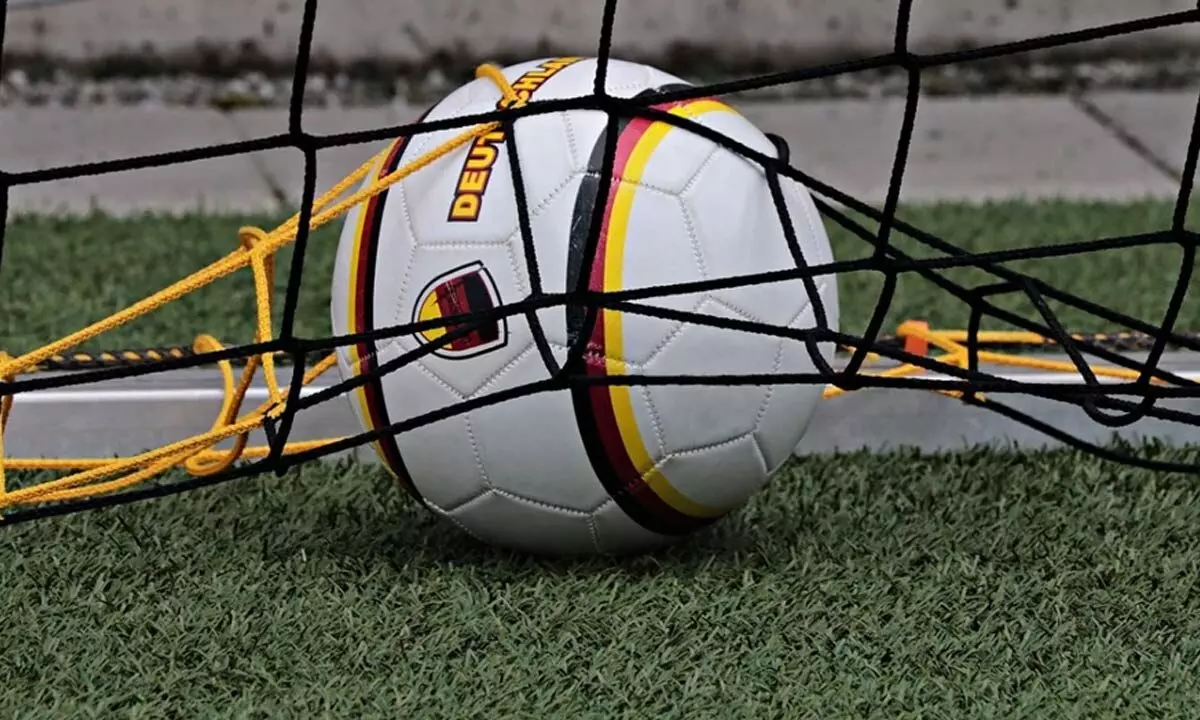Mastering the Penalty Shootout: Geir Jordet's Revolutionary Insights
Share :

Geir Jordet’s new book, 'Pressure: Lessons from the psychology of the penalty shootout,' delves into the psychological mechanics of penalty shootouts. Analyzing data from major tournaments, Jordet reveals techniques that influence success rates, shares fascinating case studies, and critiques the reluctance of top coaches to adopt strategic mental practices.
As Euro 2024 hits the knockout stage and the spectre of the penalty shootout moves into view, anyone daring to mention the term "lottery" needs to run to their nearest bookshop and devour the latest publication by the world expert on the subject.
Norwegian Geir Jordet has spent almost two decades watching, analysing and discussing them - including four at the last Euros - and has distilled that knowledge into a fascinating new book called "Pressure. Lessons from the psychology of the penalty shootout." It is not often that the work of a behavioural scientist changes the behaviour of those he is studying but Jordet has been a pathfinder in a long-neglected area of the game that - laughably in his view - is written off by many as something that cannot be practised.
So influential has he been that, after publishing his early findings that players who rushed their kicks immediately on the sound of the referee's whistle were more likely to miss than those who took their time, they started to take longer. Jordet's book follows the story of the shootout from its somewhat chaotic early days in the 1970s and peaks at the astonishing finale to the 2022 World Cup.
He has laboriously mined and examined data from every shootout in the World Cup, Euros and Champions League - getting towards 100 in all - as well as many in the women's game. The book explains some key things that players should and should not do, both when preparing for their own moment in the spotlight and when dealing with a team mate's miss, while he also shows how the laws around shootouts are still something of a wild west that are increasingly tested by goalkeepers.
Additionally he can barely disguise his astonishment that, despite the wealth of analysis and information available, some of the game's most successful coaches almost wilfully refuse to take steps to improve their team's chances in a situation that crops up in 28% of Euro and World Cup knockout games. RASHFORD'S MISS
One of the most striking sections in the book focuses on Marcus Rashford's miss when England lost to Italy in the final of Euro 2020, pointing out that the 11 seconds he took between the referee's whistle and starting to move was the longest by any men's player for the 718 kicks taken in the three competitions he studied over almost 50 years. Rashford's average on his previous 10 kicks, which were all successful, was 5.7 seconds.
"I can only speculate as to why he did that," Jordet told Reuters in an interview. "I show in the book that players who stand and wait are usually doing something to get control, which is usually beneficial. But it was probably a case of what we describe as 'over-thinking'. It looked like he was in a bad dream."
Jordet devotes a whole chapter to England, less on their tortured shootout history than on how they built an astonishing, 18-month project entirely focused on finally winning one at the 2018 World Cup, which they duly did against Colombia. "I was surprised and ecstatic when I heard what they were doing because I hadn't ever seen anything like it," Jordet said. "I love that rigour and it think it served them well - though of course it didn't go so well last time out."
BODY LANGUAGE Jordet says his interest falls away once the player strikes the ball, but he is a sponge soaking up everything that happens before then.
"You take in posture, body language, facial expressions - I don't like it when I see them smiling," he said. "How do they place the ball, will they turn away from the keeper or face him? But I also look maybe more than anything at whether there is a structure to their behaviour? Is it something that seems like it was done for the first time or is this something that you can tell they've done hundreds of times? "
Jordet has a special appreciation for goalkeepers who take "distraction" to the extreme in a bid to swing the odds slightly in their favour. His highlight was the "almost crazy" antics of Australia keeper Andrew Redmayne, including throwing the water bottle complete with penalty taker notes of his opposite number into the crowd in their famous shootout win over Peru to reach the 2022 World Cup.
"I didn't know whether to laugh or cry at that," he said. Jordet was similarly amazed watching the shootout that decided the 2022 final - more specifically the way the respective coaches prepared for it.
Argentina's Lionel Scaloni clearly had a plan - only he spoke to the players, with his assistants staying in the background. Conversely France's Didier Deschamps, an outspoken member of the "it's a lottery that can't be trained for" camp, seemed to be making it up on the hoof, as his players and assistants broke off for individual huddles. "They have a magical two minutes to influence their players before they're about to take the most important step they've ever taken in their whole lives," said Jordet.
"In Qatar I saw that all the teams are fantastic before the shootout when it comes to water, massage - everything physical they need - but when comes to giving the types of psychological support I describe in the book, some still haven't figured it out."















